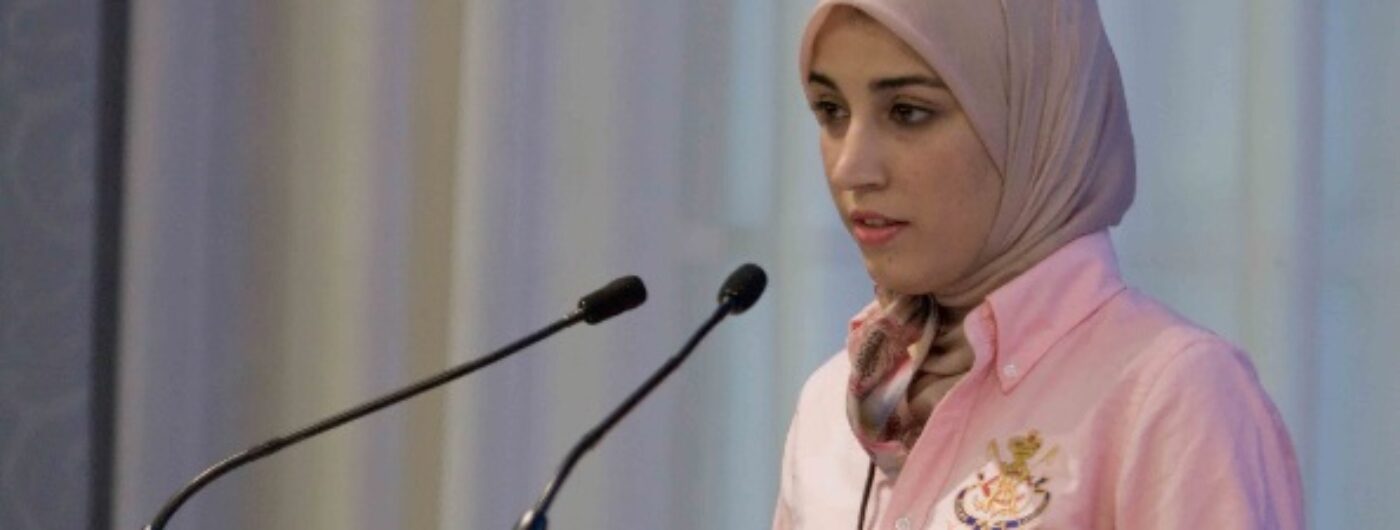
UfM interviews Soukeina El Bouj
UfM: In your opinion, what important role can women play in terms of job creation?
Soukeina El Bouj (S. E.) : For me, a woman is already a leader. A woman who looks after the home, her children, her husband; she’s already a female entrepreneur. We need to give women a place in society where they can play an active role, where they can drive female entrepreneurship to a higher level in the Mediterranean countries.
UfM: Tell us about your project.
S. E. : I’m currently working as a young entrepreneur in my own country. I’ve just set up my own company, with the aim of building a private school to provide pre-school, primary, junior and secondary education. The school will be built in a rural area of Morocco, and not in a large city, to give children in rural regions the opportunity to benefit from the same high levels of education that children in big cities have.
UfM: How will setting up this school stimulate job creation?
S. E. : First and foremost, building this school will create jobs in terms of its physical construction. After that, the school will need to employ around 60-70 people for its day-to-day activities, such as administrative staff, teachers, school-bus drivers, cleaning staff and so on.
UfM: How has the UfM supported you to set up this project?
S. E. : Besides being a beneficiary of the UfM-labelled “Young Women as Job Creators” programme, I had the opportunity to undertake an internship at the European Investment Bank in Luxembourg, which enabled me to gain an insight into the working world and to understand professional working practices. It’s also where I found the inspiration I needed to develop the idea for my project and realised that I was ready to join the world of female entrepreneurship, develop my skills and contribute towards the development of other people in my region.
UfM: What exactly does the “Young Women as Job Creators” project consist of?
S. E. : In addition to my internship, I had the opportunity to attend workshops given by the AFEM, Association des Femmes Chefs d’Entreprises au Maroc (Moroccan Association of Women Entrepreneurs) on the importance of gender equality and giving women a place in civil society.
UfM: How will your project help the young girls and women in your region?
S. E. : In terms of job creation, the development of my school will help women in the region to find employment and encourage them to work. In rural areas, the belief persists that women shouldn’t work, that they should stay at home to raise the children and look after the home. Through my project I am trying to dispense with these ideas that persist mainly in the male community and to raise awareness among women about the importance of being active, so that they can find their place in society.
UfM: As a young women setting up a project in a traditional society, what are the biggest challenges you face?
S. E. : I think I’ve been a bit lucky in this respect because I have been supported by the Government and local officials in setting up the project, who share the same philosophy that it will help, first and foremost, to improve the situation of women in the region.
UfM: What would you say to women who, like you, want to set up their own project?
S. E. : I would tell them to believe in themselves, to believe in their potential. We don’t have to worry anymore that men will always be better placed in terms of business or decision-making. As women, we also have a role to play.
UfM: Are you optimistic about the future of women in your region?
S. E. : Fortunately, yes. I think that there has been a positive improvement in the situation of women generally in Morocco. We are more and more open to giving women decision-making roles, and encouraging them to improve their situation.
About the programme
The UfM-labelled project “Young Women as Job Creators” promotes self-employment and entrepreneurship among young female university students who are about to graduate from universities in Jordan, Morocco, Palestine and Spain, and who are interested in setting up their own business. This project is centred on the organisation of Women Entrepreneurship Days (WED), which are a series of seminars that offer participants specific training and coaching in setting up businesses.
On 15 January 2014, AFAEMME and the Union for the Mediterranean signed a Global Project Memorandum, to ensure that the project would be replicated in other countries and universities in the Euro-Mediterranean region, in an effort to promote female entrepreneurship and contribute to the development of sustainable economies based on private initiative, quality education and gender equality.
The second phase of the project will take place in seven countries, with Egypt, Tunisia and Albania joining the four countries that participated in the first phase. The third phase will comprise the seven countries that participated in phases one and two, plus Algeria, Croatia, Lebanon and Turkey. Once the three phases of the project have been completed in 2015, 11 countries in total will have taken part.

